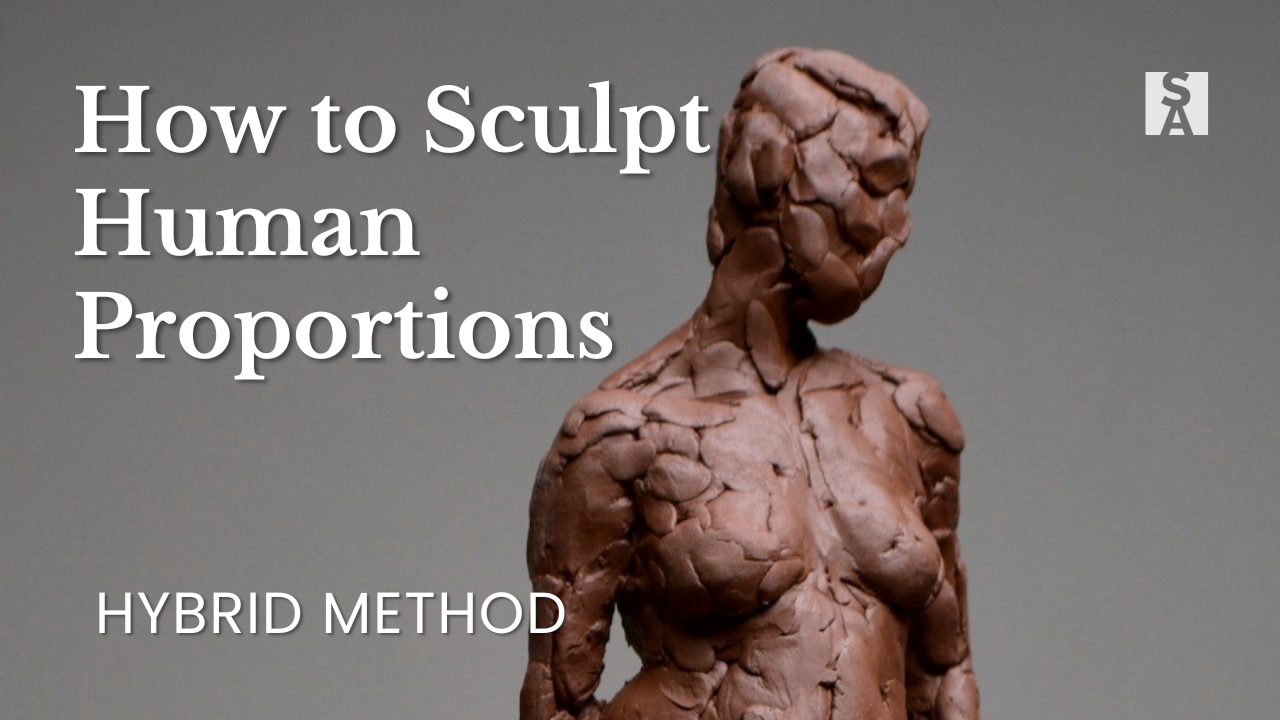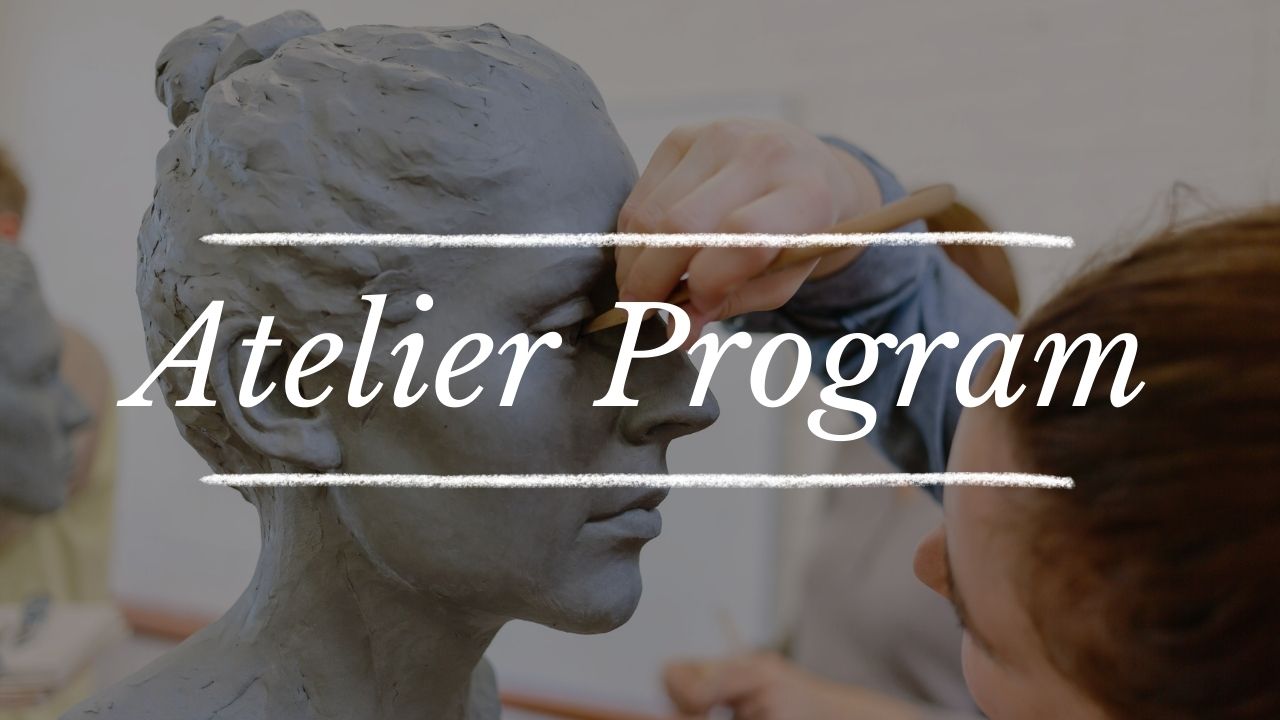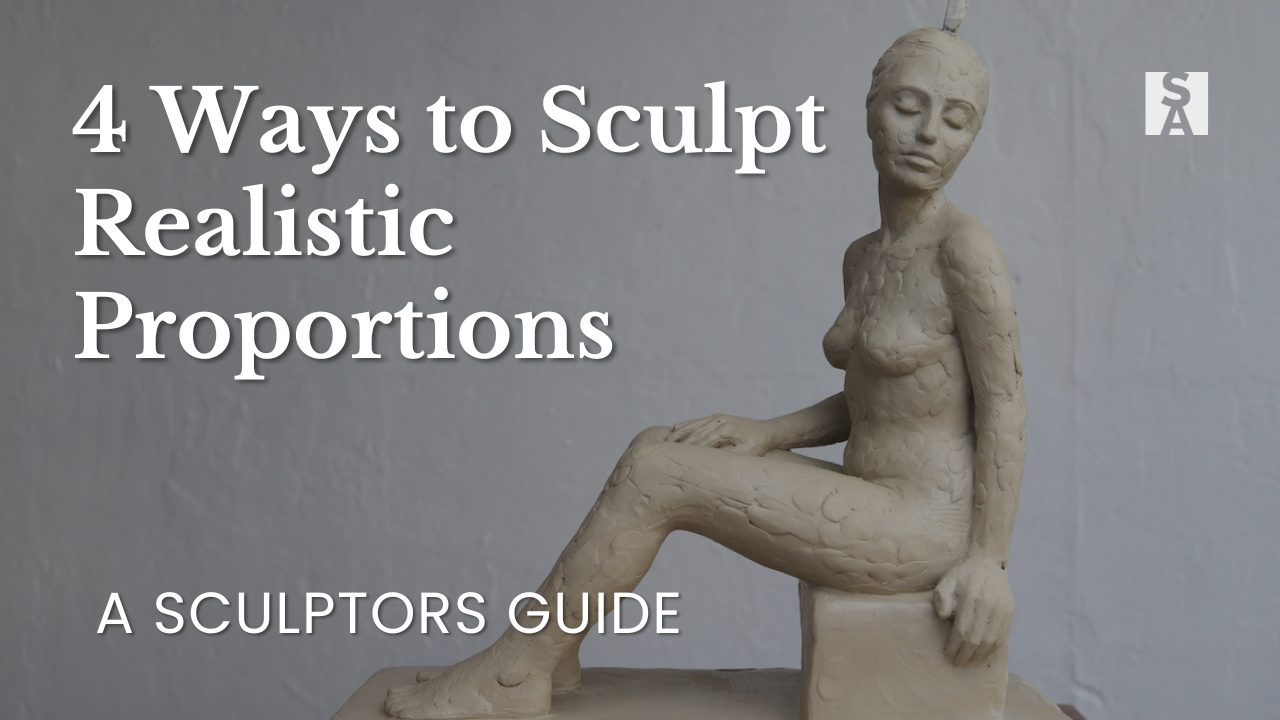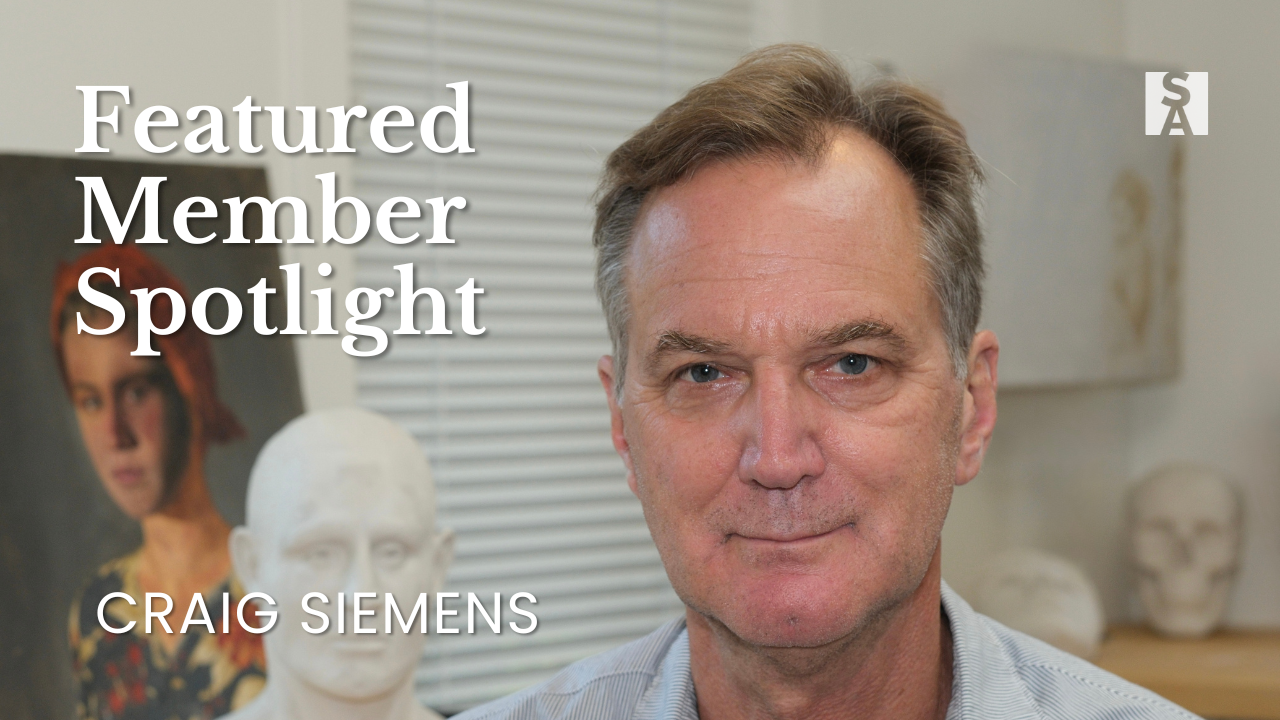How to Sculpt Human Proportions with a Flexible Hybrid Approach

This post is part of a 4-part series on how to sculpt realistic human proportions.
So far, we’ve explored three distinct approaches:
- Canon of Proportions: A standardized historical system
- Observation: Training your eye to sculpt what you see
- Measuring Techniques: Using calipers for accuracy
In this final post, we’ll look at how sculptors combine these approaches into a hybrid method that adapts to each project while still staying grounded in accuracy.
Why Sculptors Combine Methods for Realistic Figure Proportions
There’s no one-size-fits-all method for sculpting the human figure, and that’s a good thing.
Most experienced sculptors shift between multiple systems depending on:
- The subject and reference
- The sculpting scale and method
- The goal of the artwork
This is where the hybrid approach proves itself: it lets you stay flexible, responsive, and creative, while still building accurate, believable forms.
What Is the Hybrid Method of Proportions?
The hybrid method is the practice of blending:
- Canon systems for initial proportions
- Direct measurement for precision
- Visual observation for gesture, flow, and individuality
Rather than relying on a single framework, you're choosing which method to use at each stage of the sculpture and adapting to what the project needs.
Why I Sculpt Human Proportions Using the Hybrid Method
In my own studio, and with my students in the Atelier program, I almost never use just one system. I use different methods depending on the sculpture’s intention, complexity, and timeline.
For Example:
- On a long-term figure project, I start with a few canonic measurements to establish the initial armature, and then use direct caliper measurements from the model to build the structure of the figure with anatomical accuracy and consistent scale. I then refine the gesture, forms, and flow using pure visual observation.
- For a quick gesture sketch, I typically work entirely by eye, and use no measurements at all.
The hybrid method lets me switch between precision and flow without losing sight of the overall form.
How to Sculpt Human Proportions Using the Hybrid Method
Here’s a typical sequence for applying the hybrid method in your sculpture:
1. Start with a Canon System
- Use a canon of proportions to create the initial armature or rough block-in
2. Add Direct Measurements
- Use calipers to take specific measurements from your model or reference
- Scale up or down if needed with a consistent ratio
- Block in the full figure using these measurements as guidelines
3. Refine Using Observation
- Look deeply not just at form, but at gesture and flow
- Adjust for asymmetry, rhythm, tension, and anatomical variation
- Let your eye guide the subtle shifts that make your sculpture feel alive
The Benefits of a Hybrid Approach
Using a combination of sculpting methods gives you:
- A solid structure to build from
- Tools to catch errors early
- The ability to capture individuality in the figure
- A more creative, responsive sculpting process
That is why I teach multiple methods, not just one system, but a flexible, principle-based approach. Unlike rigid academic methodologies that focus on a single technique, my goal is to help sculptors develop true understanding so they can adapt the right tool for each project, rather than be stuck following a formula.
Want to Learn My Full Sculpting System?
If you’re ready to master figure sculpture and learn how to use observation, measurement, and proportion together:
→ Join the waitlist for the Atelier Figure Sculpting Program
Inside the program, you’ll learn how to create figure sculptures with accurate proportions and lifelike individuality.
ARE YOU ON THE LIST?
Online Atelier Program for Sculpture:
Master the foundations of traditional clay figure sculpting.
Next Enrolment January 2026.
Enter Your Details Below to Get Notified:
You can unsubscribe at any time.




